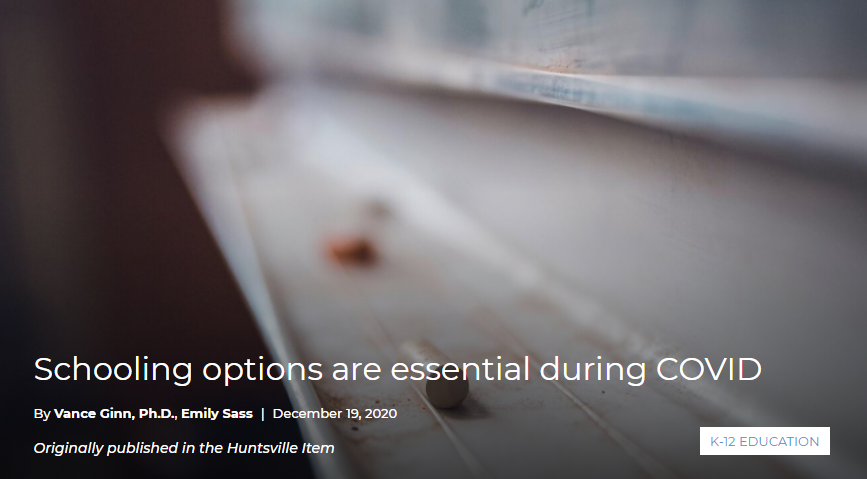|
Are your kids getting the education they need—either in person, or remotely? It might depend on where you live; it should instead be up to you.
Schools shut down last spring. Some reopened in the fall, some did not. Others, like those in New York City, are closing again. Some schools are trying to mix in-person and virtual instruction. This confusion should be alleviated as much as possible by allowing parents to decide which schooling is best for their kids. Based on the evidence, it seems that schools can safely keep in-person instruction as they aren’t super-spreaders, and that many students benefit from this kind of instruction. A recent national poll found that more than 50% of parents are comfortable with returning to school. The same poll found that half of parents with a choice selected remote education for their children. Ultimately, decisions about schooling should happen closest to students, starting with their parents. The COVID-19 shutdowns have shown us the need for school choice—letting parents decide what schooling works best for their children. Families with means already have more choices, of course. Some have chosen to put their kids in private schools or home school. But other families can’t afford this and must try to make their public school work—while also trying to make ends meet. For example, virtual instruction usually requires an adult’s care to ensure that a child is able to access instruction and learn. This puts extra pressure on working families—they might have to miss work or pay someone else for childcare. We know that normal school breaks can lead to widened educational disparities. Continued school shutdowns could also lead to widening racial wealth disparities in America. A McKinsey study reported that the educational level of the average Black or Hispanic student is two years behind the average white student, based on many factors—including place of residence and wealth disparity. That study also indicates that if in-person instruction doesn’t occur until January 2021 and students receive remote instruction at reduced learning rates (or even no instruction at all), “white students would earn $1,348 a year less (1.6% reduction) over a 40-year working life, [but] the figure is $2,186 a year (3.3% reduction) for Black students and $1,809 (3.0% reduction) for Hispanic ones.” Continuity in students’ educational experiences are also at the forefront of parents’ concerns. A recent survey of 600 full-time, public school teachers across the nation showed that 67% of teachers agreed that completion rates of assignments were worse during distance learning than in-person instruction. The concern is especially high with low-income earners. The Texas Education Agency, for instance, reported a 55.6% drop this spring in progress for online math coursework for low-income families. Still, for many families, the threat from COVID-19 is more concerning than the potential drawbacks of remote instruction, particularly for students or family members who are immunocompromised. And there are at least some families who have thrived in a remote education setting. In the end, parents know their situations and concerns best. The choice should be theirs. In-person schooling, remote learning, or some other model should be their call. The burden shouldn’t lie on parents to be flexible (and accepting of whatever school officials tell them they’ll receive); it’s the school districts that must be flexible—and accountable. Child development doesn’t stop for COVID-19, or any other disruption. We owe American families the flexibility they need to keep their kids on track. And that should start with more choices for parents rather than top-down mandates by governments. https://www.texaspolicy.com/schooling-options-are-essential-during-covid/ Comments are closed.
|
Vance Ginn, Ph.D.
|


 RSS Feed
RSS Feed